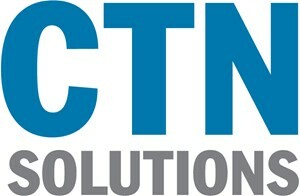Artificial intelligence is rapidly evolving, and one of the most recent developments is the ability to create AI-generated voices that are indistinguishable from real human voices. This technology is being used by scammers to create new and more sophisticated scams.
Types of AI voice scams
There are a variety of AI voice scams that target both individuals and businesses. Some of the most common types of AI voice scams include:
- Family emergency scams: In this scam, the scammer will call you and pretend to be a loved one who is in trouble. They may say that they have been arrested, that they have been in an accident, or that they need money to pay for medical bills. The scammer will often use an AI-generated voice that sounds exactly like your loved one’s voice.
- Vishing scams: In this scam, the scammer will call you and pretend to be from a legitimate company, such as your bank or credit card company. They may say that there is a problem with your account and that they need you to provide your personal information or to make a payment. The scammer will often use an AI-generated voice that sounds like a customer service representative from the company they are pretending to be from.
- Tech support scams: In this scam, the scammer will call you and pretend to be from a tech support company. They may say that there is a problem with your computer and that they need you to give them remote access to your computer. The scammer will then use the remote access to install malware on your computer or to steal your personal information.
How to protect yourself from AI voice scams
Some of the most important tips include:
- Be skeptical of any phone calls that come in from unexpected numbers. If you don’t recognize the number, don’t answer the call.
- If you do answer the call, don’t give out any personal information, such as your Social Security number, credit card number, or bank account number.
- If the caller claims to be a loved one who is in trouble, ask them to provide a specific detail that only your loved one would know. For example, you could ask them what your loved one’s favorite movie is or what their pet’s name is.
- If you are still suspicious, hang up the call and call your loved one directly to confirm that they are not in trouble.
- Use a call-screening service. These services can help you to identify and block suspicious calls.
- Be aware of the signs of a scam. Scammers often use pressure tactics, such as telling you that you have to act quickly or that you will be in trouble if you don’t comply.
- Trust your gut. If something doesn’t feel right, it probably isn’t. Don’t be afraid to hang up the phone or walk away from a conversation if you feel uncomfortable.
Reporting AI voice scams
If you think you have been the victim of an AI voice scam, you should report it to the Federal Trade Commission (FTC). You can file a report online at ftc.gov/complaint.
AI voice scams are a new and evolving threat, but there are steps you can take to protect yourself. By being aware of these scams and following these tips, you can help to keep your personal information safe.
Additional tips to protect yourself from AI voice scams:
- Do not engage with the caller. If you answer a call from an unknown number and the caller asks you questions, do not answer them. Simply hang up the phone.
- Do not provide any personal information. This includes your name, address, phone number, Social Security number, or credit card number.
- Do not click on any links or open any attachments in emails or text messages from unknown senders. These links and attachments could contain malware that could infect your computer.
- Keep your software up to date. Software updates often include security patches that can help to protect your computer from malware.
- Be aware of the latest scams. The FTC and other organizations often publish alerts about new scams. You can stay informed by subscribing to their email lists or following them on social media.
By following these tips, you can help to protect yourself from AI voice scams and keep your personal information safe.
